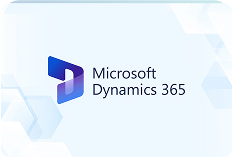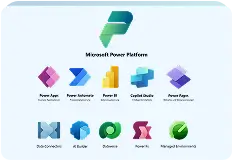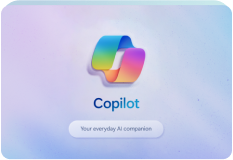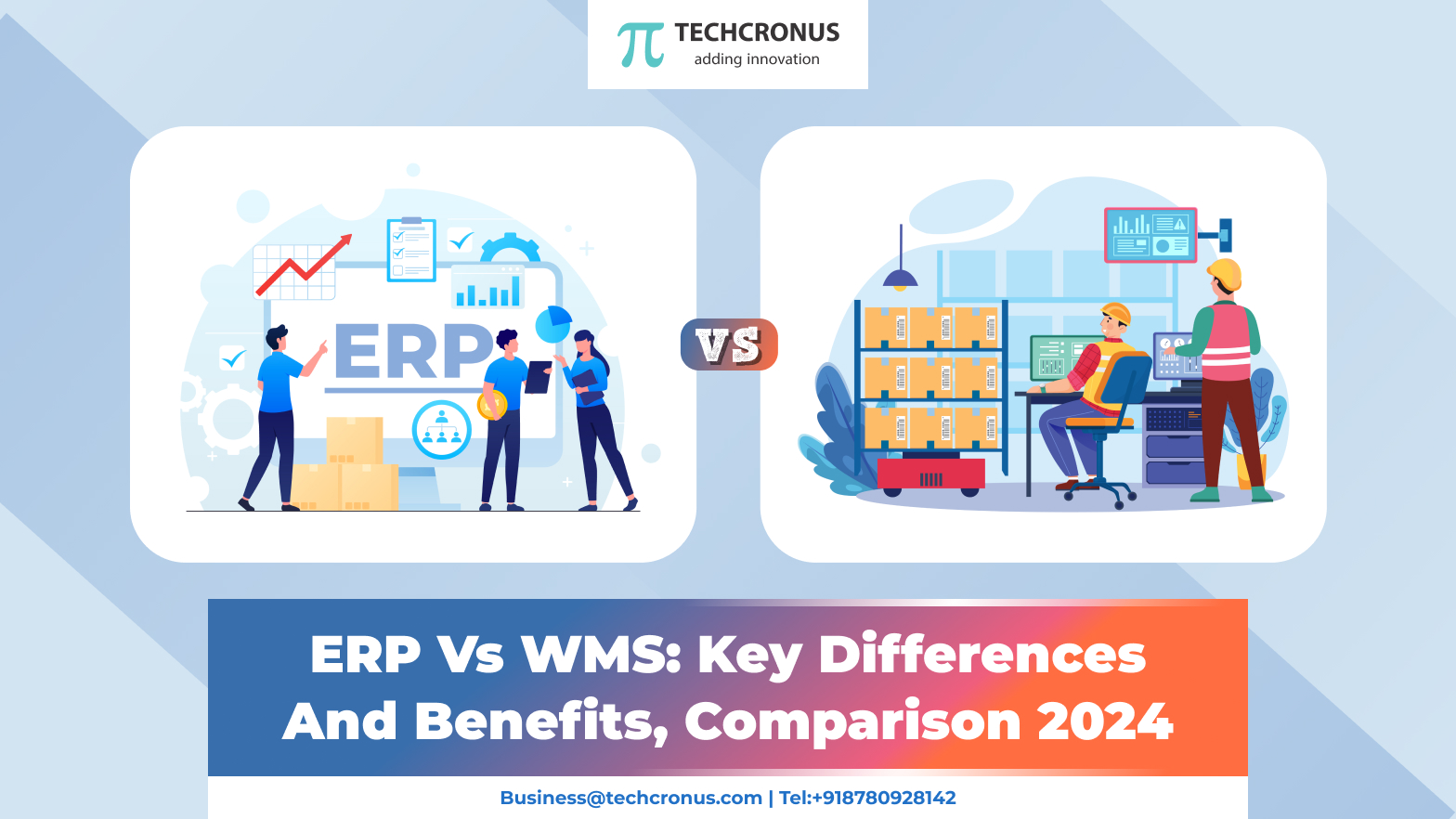Table of Contents
In today’s fast-paced business environment, the integration of efficient software systems is not just a convenience but a necessity for survival and growth. Among these, are Enterprise Resource Planning (ERP) and Warehouse Management Systems. ERP vs WMS stands out as critical tools for managing business operations effectively.
But what sets them apart? As we delve into the complexities of ERP vs WMS, it’s crucial to understand the magnitude of the ERP market.
According to a report by Mordor Intelligence, the Enterprise Resource Planning Market size is a testament to its importance and rapid adoption in various industries. Estimated at USD 65.25 billion in 2024, the market is projected to soar to an impressive USD 103.95 billion by 2029, growing at a Compound Annual Growth Rate (CAGR) of 9.76% during the forecast period of 2024-2029 (Mordor Intelligence).
This growth trajectory highlights the increasing reliance on ERP systems to streamline business processes, reflecting a significant shift in how companies are approaching their operational strategies.
What is Enterprise Resource Planning Software (ERP)?
Enterprise Resource Planning (ERP) software is a comprehensive suite of applications designed to centralize and streamline various business processes across an organization. It acts as a central hub that integrates multiple facets of a business, including accounting, human resources, supply chain management, customer relationship management, and more, into a single, unified system.
At its core, ERP software facilitates the flow of information between different business functions and manages connections to external stakeholders. This integration provides several benefits:
- Enhanced Data Accuracy and Consistency: By centralizing data, ERP systems reduce the risk of discrepancies across departments, ensuring that all business units are working with the same information.
- Improved Efficiency: ERP systems automate many routine tasks, freeing up employees to focus on more strategic activities. This automation also speeds up processes, from order processing to financial transactions.
- Better Decision-Making: With real-time data at their fingertips, managers and executives can make more informed decisions. ERP systems often come with analytics and reporting tools, enabling deeper insights into business operations.
- Scalability: As businesses grow, ERP systems can be scaled to accommodate new processes, departments, or even acquisitions, thus supporting the company’s evolution without the need for entirely new systems.
- Regulatory Compliance: Many ERP systems are designed with regulatory compliance in mind, helping businesses adhere to industry standards and legal requirements.
- Improved Customer Service: Integrating customer relationship management (CRM) into the ERP system allows for a more coordinated and efficient approach to customer service and sales.
In essence, ERP systems for small businesses serve as the backbone of many modern operations, providing a foundational platform that supports diverse activities, drives efficiency, and enables informed decision-making. As the market evolves, these ERP solutions grow more sophisticated, delivering greater customization and advanced features tailored to the unique needs of small businesses and SMBs.
What is a Warehouse Management System (WMS)?
A Warehouse Management System (WMS) is a specialized software solution designed to optimize and manage the operations within a warehouse. The primary focus of a WMS is to control the movement and storage of materials within a warehouse and process the associated transactions, including shipping, receiving, putaway, and picking. WMS systems are a critical component in the broader supply chain management, playing a pivotal role in managing the logistics of inventory and ensuring efficient warehouse operations.
Key functionalities of a WMS include:
- Inventory Tracking: WMS enables precise tracking of goods as they move through the warehouse, using technologies like barcoding, RFID (Radio-Frequency Identification), and IoT (Internet of Things) sensors.
- Optimized Picking and Packing: The system can streamline picking and packing processes, often using algorithms to determine the most efficient routes and methods for order fulfilment.
- Receiving and Putaway Management: WMS simplifies the processes of receiving new shipments and finding optimal storage locations within the warehouse, considering factors like item characteristics and demand patterns.
- Labor Management: By analyzing workflow, a WMS can help in effectively managing and allocating warehouse staff to increase productivity.
- Yard and Dock Management: Some WMS solutions extend their functionalities to managing the yard and loading docks, and coordinating the movement of goods between trucks and storage areas.
- Reporting and Analytics: WMS systems offer robust reporting capabilities, providing insights into inventory levels, order fulfillment accuracy, worker productivity, and more, enabling managers to make data-driven decisions.
- Integration Capabilities: Many WMS solutions can integrate with other supply chain management software, including transportation management systems and ERP systems, to ensure a seamless flow of information across the supply chain.
- Improved Compliance and Documentation: WMS assists in regulatory compliance related to inventory, providing necessary documentation for tracking and auditing purposes.
A WMS is essential for businesses that require detailed, real-time visibility into their warehouse operations. It is particularly crucial for companies with complex supply chains, high volume of goods moving through the warehouse, or those requiring tight control over inventory. By optimizing warehouse operations, a WMS can significantly enhance overall supply chain efficiency, reduce costs, and improve customer satisfaction.
ERP vs WMS: Enterprise Resource Planning Software vs Warehouse Management System
| Feature/Functionality | WMS (Warehouse Management System) | ERP (Enterprise Resource Planning) |
| Primary Focus | Optimizing warehouse operations including inventory movement and storage. | Integrating and managing all business processes across various departments.
|
| Key Functions | – Inventory movement and storage optimization – Precise tracking of item movement (receiving, put-away, picking, packing, shipping) – Warehouse layout planning – Stocking location optimization |
– Comprehensive business process automation (accounting, inventory, order processing, CRM, etc.) – Information flow management across business functions – Basic inventory tracking and warehouse management |
| Specialized Features | – Advanced warehouse layout recommendations – Cross-docking capabilities – Detailed stocking location priorities and ratings |
– Accounting and financial management (A/R, A/P, GL) – Order entry and invoicing – Purchase order management – eCommerce integration |
| Reporting and Analytics | Focused on warehouse operations, inventory levels, and operational efficiency. | Broad scope covering all business areas, including financial reporting, sales analytics, and operational insights.
|
| Target Users | Businesses with complex warehouse operations needing detailed inventory management and movement optimization. | Small to medium businesses needing integrated management of various business processes, larger businesses requiring a holistic view of operations.
|
| Price Range | Generally more expensive, specialized systems (around $150,000+). | More affordable, offering a broader range of business functionalities (starting around $20,000+).
|
| Best Suited For | Operations requiring detailed warehouse management beyond basic inventory tracking. | Businesses seeking an integrated solution for managing various departments and processes.
|
When comparing Enterprise Resource Planning (ERP) software with Warehouse Management Systems (WMS), it’s important to understand that while both are vital for efficient business operations, they serve different, albeit sometimes overlapping, functions. Here’s a detailed comparison to highlight their distinct roles and how they complement each other in a business setting:
Scope and Functionality:
- ERP Systems: ERP encompasses a broad range of business processes across an organization, from finance and HR to sales and customer relations. Its goal is to integrate these various functions into a cohesive whole, ensuring data consistency and streamlined operations across the company.
- WMS: WMS, on the other hand, is specialized software focusing exclusively on warehouse operations. It deals with inventory management, order fulfillment, and logistics within the warehouse, aiming to optimize these specific processes.
Primary Focus:
- ERP Systems: The primary focus of ERP is to provide a centralized framework for managing various business operations, promoting efficiency and data accuracy across departments.
- WMS: WMS is dedicated to enhancing the efficiency and accuracy of warehouse operations, from inventory control to shipping and receiving.
Key Benefits of ERP vs WMS:
- ERP Systems: ERP offers improved decision-making through integrated data, enhanced operational efficiency, and better financial management. It’s a strategic tool for long-term planning and resource management.
- WMS: WMS specializes in reducing errors in warehouse operations, optimizing storage space and labor, and improving inventory accuracy and customer service.
Integration and Compatibility:
- ERP Systems: While ERP systems can include some features of warehouse management, they might not be as detailed or specialized as those in a dedicated WMS.
- WMS: Many WMS solutions can integrate with ERP systems, complementing the broader functionality of ERP with specialized warehouse management capabilities.
Data and Reporting:
- ERP Systems: ERP provides comprehensive reporting and analytics that cover a wide range of business activities, offering insights into overall business performance.
- WMS: WMS offers detailed reporting and analytics focused on warehouse operations, such as inventory turnover rates, order fulfillment accuracy, and worker productivity.
Target Users:
- ERP Systems: ERP systems are designed for use across the entire organization, impacting various departments and levels of management.
- WMS: WMS is primarily used by personnel involved in warehouse operations, logistics, and supply chain management.
In the realm of supply chain and distribution management, Enterprise Resource Planning (ERP) and Warehouse Management Systems (WMS) are both pivotal, yet they serve distinctly different purposes. Understanding the nuances between these two systems is crucial for businesses aiming to optimize their operations. While there are areas of overlap, each system has its unique strengths and functionalities catering to specific business needs.
Warehouse Management System (WMS)
WMS is specialized in managing the nuances of warehouse operations. It excels in:
- Inventory Movement Optimization: WMS systems offer advanced intelligence in managing inventory within a warehouse. They utilize real-time data to dictate the most efficient placement and movement of items, enhancing space utilization and operational efficiency.
- Inventory Tracking and Management: WMS provides granular tracking capabilities, monitoring each item’s journey from receipt to shipment. This includes precise tracking of movements from shelves to specific stations, enhancing accountability and reducing errors.
- Warehouse Layout and Stocking Efficiency: WMS can make recommendations for optimal warehouse layouts and stock placements based on historical data and utilization patterns, leading to more efficient picking processes and overall warehouse management.
- Specialized Features: Features like cross-docking, which allow for the direct transfer of goods from receiving to shipping, bypassing storage, are inherent to WMS, streamlining specific warehouse operations.
Enterprise Resource Planning Software (ERP)
ERP, on the other hand, offers a broader scope of business process management:
- Integrated Business Processes: ERP systems automate and streamline processes across various departments, including accounting, inventory management, order processing, and customer relationship management.
- Information Flow Facilitation: ERP is designed to ensure seamless information flow across all functional areas of a business, providing a unified view that aids in coordinated decision-making and strategy implementation.
- Inventory and Warehouse Management Features: Many ERP systems include functionalities akin to WMS, such as inventory tracking and basic warehouse management, though not as advanced in terms of warehouse layout optimization.
- Comprehensive Business Management: ERP integrates aspects like accounting, order entry, purchasing, and eCommerce, providing a holistic approach to managing a business’s diverse needs.
Comparison and Decision-Making
- Cost Considerations: WMS solutions, specialized in warehouse management, tend to be more expensive (around $150,000+) than ERP systems, which offer broader functionality, including basic WMS features, at a lower cost (starting around $20,000+).
- Scale and Complexity: For small to medium-sized businesses, ERP systems often suffice, providing essential inventory and warehouse management capabilities. Larger or more complex operations might benefit more from a dedicated WMS.
- Integration and Scalability: While WMS focuses on warehouse efficiency, ERP provides an integrated solution for managing the entire business. The choice often depends on the scale, budget, and specific needs of the company.
Which is Better for Your Business: ERP or WMS?
Deciding whether an Enterprise Resource Planning (ERP) system or a Warehouse Management System (WMS) is better for your business hinges on several key factors. It’s essential to consider your business’s specific needs, the complexity of your operations, your budget, and your long-term goals. Here are some guidelines to help you make this crucial decision:
1. Understand Your Business Needs:
- For Complex Warehouse Operations: If your business primarily revolves around complex warehouse operations with intricate logistics, a WMS might be more suitable. It provides specialized functionalities like advanced inventory tracking, warehouse layout optimization, and detailed movement monitoring.
- For Integrated Business Processes: If you need a system that offers a broad spectrum of functionalities encompassing various departments (like finance, sales, customer relations, and inventory management), an ERP system would be more beneficial.
2. Assess the Scale of Operations:
- Small to Medium-Sized Businesses: Typically, small to medium-sized enterprises find ERP systems adequate as they provide essential warehouse management features along with other business functions, all integrated into one platform.
- Large Enterprises or Specialized Warehouses: If you operate a large enterprise or your warehouse has specific, complex needs, investing in a WMS could be more advantageous.
3. Budget Considerations:
- WMS solutions are generally more expensive than ERP systems. If budget constraints are a significant factor, an ERP system might offer a more cost-effective solution while still covering essential warehouse management functionalities.
4. Future Growth and Scalability:
- Consider not just your current needs but also future growth. An ERP system offers scalability across various business functions, which might be crucial for expanding businesses. A WMS, while more specialized, might offer limited functionality outside of warehouse management.
5. Integration with Existing Systems:
- If you already have systems in place, consider how a new ERP or WMS would integrate with them. Seamless integration can significantly impact the efficiency and effectiveness of your business operations.
6. Regulatory Compliance and Reporting Needs:
- Depending on your industry, compliance with certain regulations might be essential. ERP systems often have built-in compliance features. ERP vs WMS systems, while focused on warehouse operations, may require additional integration for compliance.
7. Expertise and Training:
- Implementing either system requires staff training and sometimes, hiring experts. Evaluate your team’s ability to adapt to the new system and the associated training costs.
Conclusion:
In conclusion, the choice between an ERP vs WMS hinges on your specific business needs: ERP for integrated business process management across various departments, and WMS for specialized, complex warehouse operations. This decision is crucial in aligning your technology investment with your business objectives and operational requirements.
FAQs Related To The Topic Of WMS and ERP:
1. What is the difference between SAP ERP vs WMS?
SAP WMS (Warehouse Management System) is a specialized solution for managing warehouse operations, focusing on inventory movement and storage. ERP (Enterprise Resource Planning) is a broader system that encompasses various business processes, including inventory management but extends to finance, sales, and more.
2. What is the difference between data warehouse and ERP?
A data warehouse is a repository for storing and analyzing large volumes of data for reporting and analysis purposes. ERP, on the other hand, is a comprehensive software suite that integrates and automates various business processes across different departments, including data management.
3. What is ERP in warehousing?
ERP in warehousing refers to the use of an Enterprise Resource Planning system to manage and optimize warehouse operations. It includes features for inventory tracking, order processing, and other warehouse-related functions.
4. Is WMS a type of ERP?
No, WMS (Warehouse Management System) is not a type of ERP. WMS is a specialized system focused on warehouse operations, while ERP covers a broader range of business functions beyond warehousing.
5. How does an ERP and a WMS work together?
ERP and WMS can work together through integration. ERP systems often include basic warehouse management features, but for complex warehouse operations, a dedicated WMS can be integrated with the ERP to enhance inventory and logistics management.
6. What is the difference between WMS and MRP?
WMS (Warehouse Management System) manages warehouse operations and inventory movement. MRP (Material Requirements Planning) focuses on production planning and materials procurement to meet manufacturing needs. While related, they serve different purposes within the supply chain.
7. Is Snowflake an ETL tool?
No, Snowflake is not primarily an ETL (Extract, Transform, Load) tool. Snowflake is a cloud-based data warehousing platform designed for data storage, processing, and analytics. ETL processes can be implemented using tools like Apache NiFi or Talend with Snowflake.
8. Is warehousing a function of ERP?
Yes, warehousing is one of the functions that can be included in an ERP (Enterprise Resource Planning) system. ERP systems often have integrated warehouse management features to handle inventory tracking, order processing, and related warehouse operations.






















